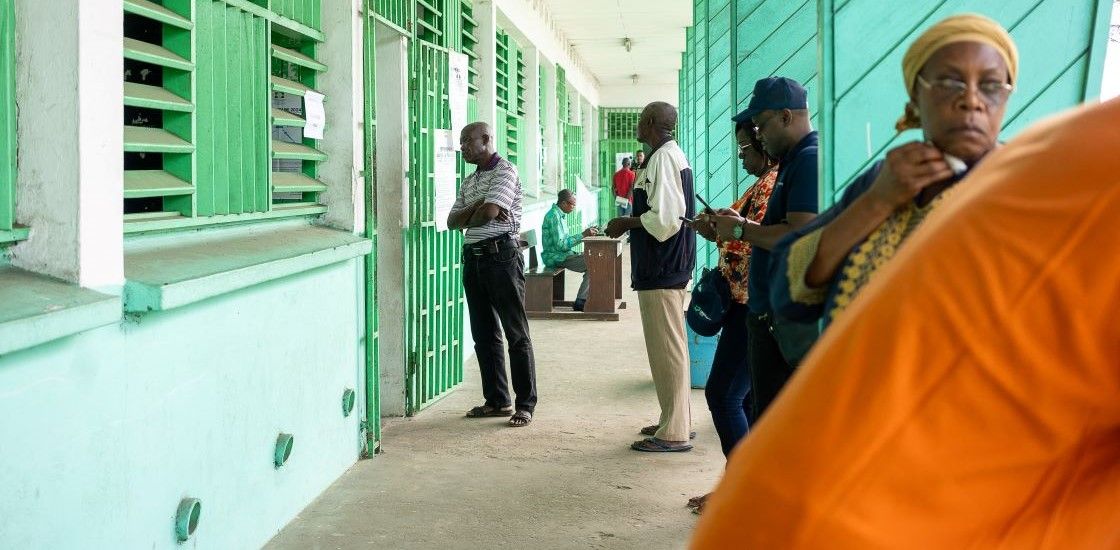- Home
- Middle East
- Gabon Votes on New Constitution Under Junta-Imposed Curfew

Voters wait in line outside a polling station during Gabon's referendum in Libreville on November 16, 2024. ©Nao Mukadi - AFP
Gabon extended its night curfew on Saturday as it held a referendum on a new constitution that the ruling junta claims will mark a new chapter after 55 years of dynastic rule in the oil-rich African nation.
The estimated 860,000 registered voters have faced a barrage of calls from authorities via TV, radio, and social media, urging them to make their votes count—choosing a green ballot for “yes” or a red one for “no.”
With the campaign dominated by official propaganda from the junta, which seized power in a coup last August, local media report that voter turnout will be a critical factor in the referendum.
Voting began late at several polling stations in the capital, Libreville, with ballots still being distributed when polls opened at 7:00 AM (0600 GMT). The 2,835 polling stations nationwide are scheduled to remain open until 6:00 PM.
On Saturday, the junta announced an extension of the night curfew by two hours, moving it to midnight “throughout the entire electoral process,” according to a decree read on state television. The decree did not specify how long the curfew, now ending at 5:00 AM, will remain in effect.
The proposed constitution envisions a presidency limited to a maximum of two seven-year terms, with no prime minister and no dynastic transfer of power. It would also require presidential candidates to be exclusively Gabonese, defined as having at least one Gabon-born parent and a Gabonese spouse. This provision would disqualify former ruler Ali Bongo Ondimba, who is married to a Frenchwoman, as well as his children.
Transitional President Brice Oligui Nguema called the referendum a “great step forward” as he cast his vote at a school in Libreville. “All Gabonese are coming to vote transparently,” the junta chief told the press, having changed from his military uniform to a brown civilian jacket over light-wash jeans.
Oligui has promised to restore civilian rule after a two-year transition but has openly expressed his ambition to win the presidential election scheduled for August 2025. Billboards featuring the general’s image and urging a “yes” vote are ubiquitous, prompting the Union newspaper to ask, “Referendum or presidential campaign?”
"Creating a Dictator"
Queues of voters formed outside classrooms serving as polling stations at the Lycée Léon M'Ba in Libreville, all under the watchful eyes of soldiers ensuring the security of the ballot.
Nathalie Badzoko, a 33-year-old civil servant, stated she was voting “yes” and expressed her confidence in the junta, although she admitted she had “not read the entire text” of the 173-article proposal.
Louembe Tchizinga, a 45-year-old taxi driver casting his ballot, echoed her sentiments.
Opponents of the proposed constitution argue that it is designed to allow the strongman to remain in power. “We are creating a dictator who is writing the constitution for himself,” said lawyer Marlene Fabienne Essola Efountame.
Ali Bongo ruled for 14 years before being overthrown moments after being declared the winner of a presidential election, which both the army and the opposition labeled fraudulent. He took office following the death of his father, Omar Bongo, who ruled Gabon with an iron fist for more than 41 years.
The opposition and the military coup leaders have accused Ali Bongo's regime of widespread corruption, mismanagement, and embezzlement.
Sophie Pons, with AFP
Comments